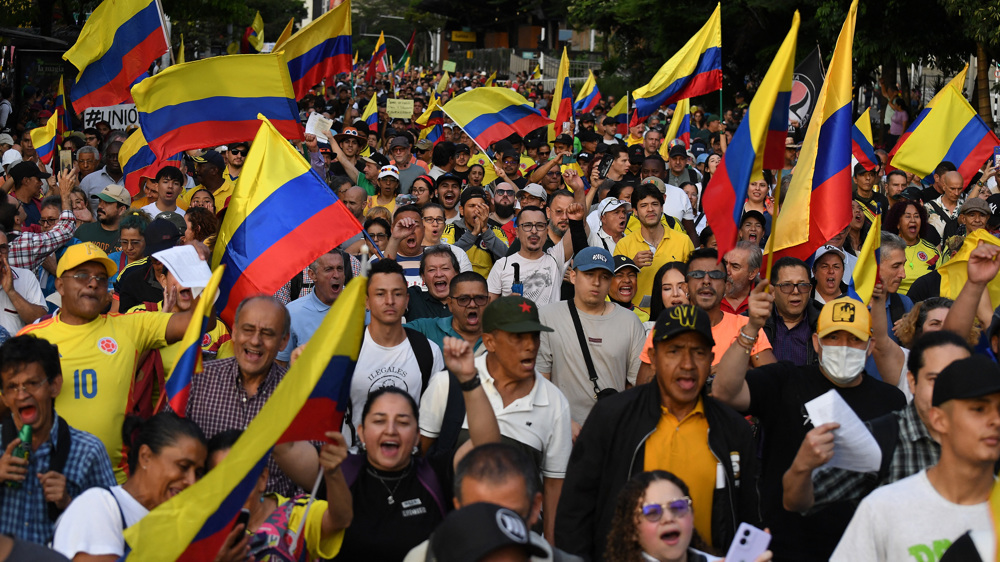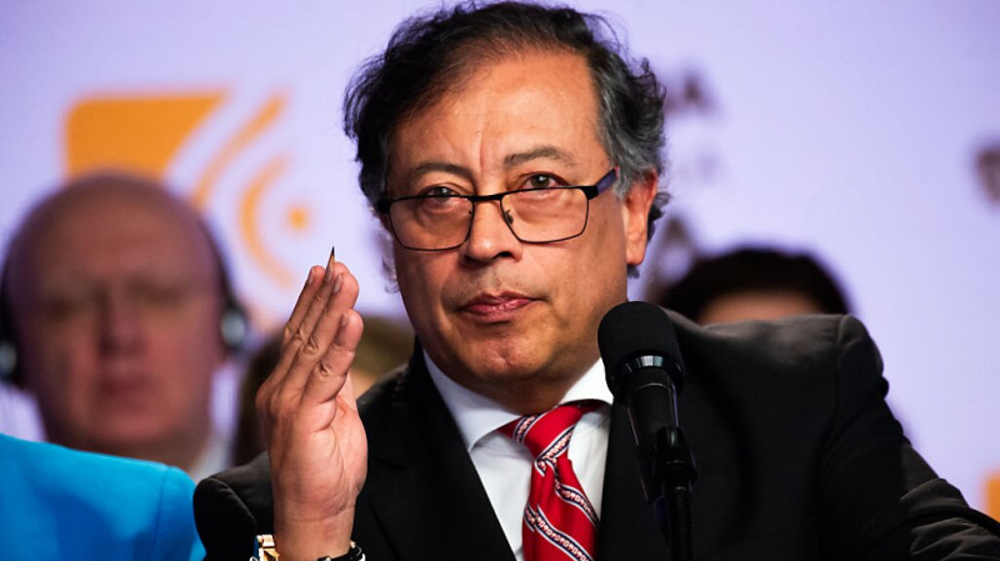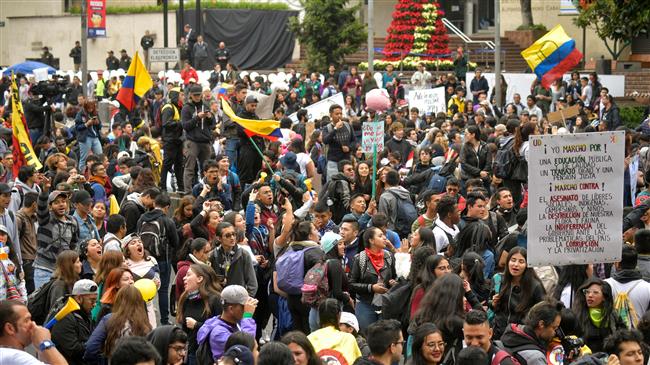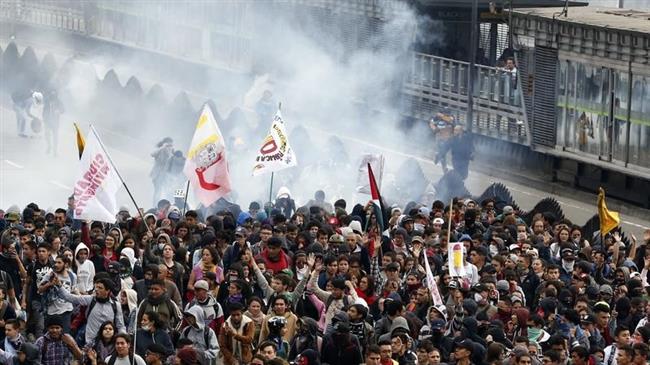Colombian president promises social reforms as three dead in massive protests
Colombian President Ivan Duque has promised a “national conversation” on social policies, one day after massive demonstrations against his right-wing government left three dead and dozens wounded.
"Starting next week, I will launch a national conversation to strengthen the current social policy agenda, working in a united way with medium- and long-term vision, which will allow us to close the social gaps," he said in a televised speech on Friday.
"This conversation will take place regionally with all the social and political sectors. I will use electronic media and participatory mechanisms... so that we can all build a meaningful path of reform."
The popularity of Duque's right-wing government -- a key ally of the United States -- has been on the wane since his election 18 months ago, as it deals with hosting 1.4 million refugees from neighboring Venezuela's economic meltdown as well as the complex fallout of a 2016 peace deal with FARC rebels and rampant drug trafficking.

Hundreds of thousands of Colombians took to the streets in Bogota and other cities on Thursday to protest Duque's economic, social and security policies, as part of a nationwide general strike.
There were arrests and clashes as trade unions, students, opposition parties and the South American country's indigenous organizations vented their anger.
Duque's statement Friday came shortly after Bogota Mayor Enrique Penalosa declared a nighttime curfew in the capital, following clashes between protesters and police in the southern part of the city of seven million earlier in the day.
The president said he was stepping up the police presence and ordering the "deployment of joint patrols of police and army in the most critical places."
Earlier Friday, hundreds of demonstrators were protesting in cities across the country, banging pots and pans in a form of protest that is common in parts of Latin America, though not in Colombia.
The three deaths had taken place during protests Thursday in the western Valle del Cauca department, Defense Minister Carlos Holmes Trujillo told reporters.
There were also 122 civilians wounded, 151 security forces hurt and 146 people detained, the government said.
The protests come amid social upheaval across South America, as a wave of unrest over the past two months has battered governments in Chile, Bolivia and Ecuador.
(Source: AFP)
VIDEO | Press TV's news headlines
Iran to start no war, but Armed Forces poised to defend homeland: Govt. spokeswoman
VIDEO | UNMHA exit: A legacy of failure in Hudaydah as violations persist
VIDEO | Winter hardships deepen suffering in occupied West Bank
VIDEO | Homes under occupation: When living rooms become military posts
War could reach your own doorsteps: Iraqi anti-terror group warns Iran’s enemies
IRGC: Iran holds upper hand in determining any war’s endgame
'Fingers on trigger': Iran warns of strong response while signaling openness to 'fair' deal















 This makes it easy to access the Press TV website
This makes it easy to access the Press TV website